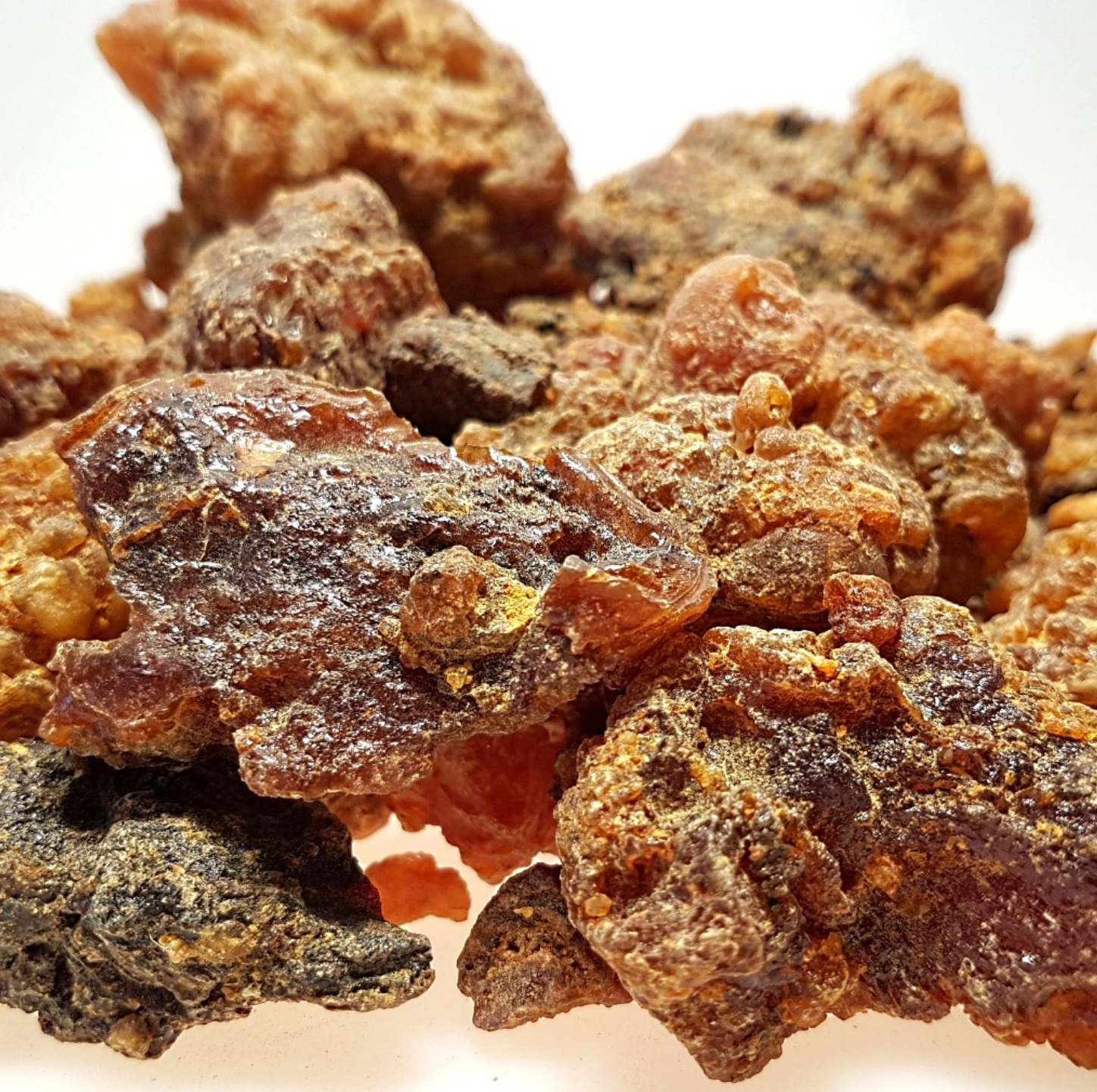Myrrh can be used in a variety of ways in inflammatory bowel disease (IBD)
Seven gastroenterological specialists from clinics, practice and science have formulated a current consensus on the use of a herbal combination preparation made from myrrh, chamomile and coffee charcoal for IBD [Literature 1]:
In the acute episode, the phytopharmaceutical can be used in addition to cortisone or mesalazine, for example, and in the longer term in the remission phase adjuvant to mesalazine. To maintain the relapse-free phase in ulcerative colitis, the myrrh preparation also showed an effect comparable to the standard therapeutic agent mesalazine in a German randomized, controlled study (RCT) as a single therapy [literature 2].
In German-speaking countries, around half a million people suffer from inflammatory bowel disease (Crohn's disease, ulcerative colitis), and the number is rising. Since a cure is not possible, those affected must be treated for life. Many IBD patients want phytopharmaceuticals for long-term therapy that are both effective and low in side effects and can therefore be taken over the long term.
The seven gastro-specialists, consisting of gastroenterologists, physicians for naturopathic treatment and study directors, who worked out the consensus on the use of the myrrh remedy for IBD in Frankfurt am Main in mid-2017, also agreed on the following "basic therapeutic principle":
When deciding whether and when the herbal combination preparation should be used for IBD, it is not a question of “either a chemical-synthetic drug or a phytopharmaceutical”; instead, the gastro experts always recommend the option of a symptomatically oriented add-on therapy with the Therapy target "improvement of symptoms".
Dr. rer. nat. Cica Vissiennon, who has been investigating the multiple mechanisms of action of myrrh, chamomile and coffee charcoal at the University of Leipzig for many years, showed both the anti-inflammatory and spasmolytic effects of medicinal plants and their properties, such as strengthening the intestinal barrier, using current publications [Literature 3-7].
Prof. Dr. med. Jost Langhorst, Head of the Center for Integrative Gastroenterology, Essen-Mitte Clinics, added the results of his study [Literature 2], which confirms the practical use of the myrrh agent in everyday medical practice:
“With our publication it could be shown that the phytotherapeutic in ulcerative colitis to maintain the relapse-free phase was as effective as the therapy with the gold standard mesalazine. This gives us the first scientific evidence that the herbal medicine made from myrrh, coffee charcoal and chamomile is an effective alternative to mesalazine for maintaining remission in ulcerative colitis
can be ”, explained Langhorst. Or, to put it briefly: "The myrrh remedy was able to keep up with mesalazine in the study."
The other participants in the interdisciplinary round table, five doctors from clinics and practices, were able to confirm the study results based on their own experience:
"According to the results of the Langhorst studies, we are achieving results that are comparable to those with mesalazine, but the patients are significantly more satisfied," said Dr. med. Jörn Reckel, general practitioner in private practice, Ahrensburg.
“We have been using the myrrh medicine successfully for years. The good scientific data has led to an expansion of the areas of application in our clinic. The myrrh preparation is the agent of choice, especially for maintaining remission in ulcerative colitis, ”explained Prof. Dr. med. André-Michael Beer, Director of the Clinic for Naturopathy, Clinic Hattingen-Blankenstein, Department of Naturopathy, Ruhr University Bochum.
Dr. med. Michaela Moosburner, specialist in gastroenterology, naturopathic treatment, nutritional medicine, chief physician at the hospital for natural healing, Munich stated:
“In addition to the standard medication, the administration of the myrrh drug has proven to be very effective in ulcerative colitis with diarrhea or mushy stools. Basically, the preparation helps with diarrhea, because we often prescribe it. "
PD Dr. med. Nicole Bregenzer, resident doctor for internal medicine and gastroenterology, Tegernheim, usually combines it with mesalazine for ulcerative colitis and uses it especially for IBD patients who suffer from diarrhea and / or spasms. Prof. Dr. med. Ahmed Madisch, gastroenterologist, chief physician, Siloah Clinic, Hanover, drew the following conclusion:
"I find that IBD patients in Germany are often undersupplied and we need additional or alternative treatment options such as phytopharmaceuticals in many places: to maintain the relapse-free phase, it is definitely adjuvant to mesalazine or as an alternative to mesalazine in case of intolerance or on Wish of the patient. "
